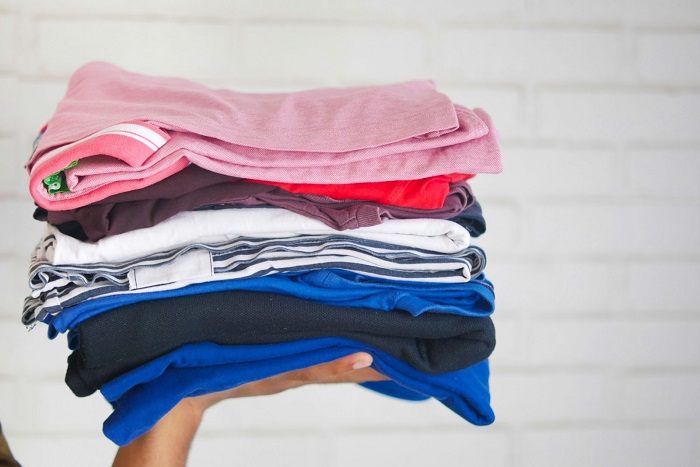The washing machine is a household essential, making our lives easier by keeping our clothes clean. Even while it saves time, your washing machine can be harming your clothing in ways you can’t see. From fading to fabric wear and tear, many factors can lead to long-term clothing damage. In this article, we’ll explore how your washing machine might be secretly ruining your clothes and how to avoid these common issues.
Incorrect Washing Settings
Different settings for different types of fabric are included with washing machines. If you’re using the wrong settings, your clothes could suffer unnecessary damage.
- High Heat: Hot water can fade colors and shrink fabrics, especially delicate materials like wool or silk.
- Heavy-duty Cycles: These are designed for heavily soiled clothes and can be too harsh for lighter fabrics, causing snags and wear.
- Quick Wash: While convenient, this cycle often uses higher agitation, which can stretch or damage delicate fabrics.
- Tip: Always check the care label and choose the appropriate cycle for each load. For delicate items, opt for a gentler setting.
Overloading the Washing Machine
It’s tempting to throw in as much laundry as possible to save time, but overloading your washing machine can cause significant issues.
- Insufficient Rinsing: Overcrowding prevents proper rinsing, leaving soap residue on your clothes.
- Increased Friction: When clothes are tightly packed, they rub against each other more, causing wear, fraying, and stretching.
- Uneven Washing: Overloaded machines can lead to uneven detergent distribution, resulting in dirt and detergent buildup on clothes.
- Tip: Keep loads manageable to allow the detergent to circulate effectively and avoid overstuffing the drum.
Using the Wrong Detergent
The kind and quantity of detergent you use can have a significant impact on how long your clothing lasts.
- Too Much Detergent: Excess detergent can leave soap residue that stiffens fabrics and causes discoloration.
- Wrong Detergent for Fabrics: Regular detergent may be too harsh for delicate fabrics, leading to fading or shrinkage.
- HE Detergent for HE Washers: If you have a high-efficiency (HE) washer, using regular detergent can cause excess suds, preventing proper cleaning and potentially damaging your clothes.
- Tip: Always use the correct detergent for your machine type and fabric. To prevent detergent accumulation, adhere to the specified dosage.
Protecting Your Wardrobe in London
When it comes to laundry in London, taking extra care with your washing machine can prevent damage to your clothes, especially in areas with hard water common in the city. Local laundromats and professional cleaning services offer specialized cycles and detergents designed for delicate fabrics and hard water conditions, complementing the tips above. By using these services or stocking up on suitable detergents from London’s supermarkets, you can keep your wardrobe pristine and extend the life of your washing machine.
Neglecting Regular Maintenance
Your washing machine requires regular care to function properly and prevent damage to your clothes.
- Mold and Odors: Detergent and fabric softener buildup can result in musty smells or bacteria growth inside the machine.
- Clogged Filters: Dirty filters or uncleaned drum parts can hinder washing performance, leaving detergent or dirt residue on clothes.
- Worn Parts: Over time, drum damage or unbalanced machine components can cause clothes to get caught or ripped.
- Tip: Run regular cleaning cycles and check the drum and filter for debris to keep your washing machine in good working order.
Ignoring Fabric Care Instructions
Following fabric care labels is crucial to preventing damage during washing. Ignoring these guidelines can result in shrinkage, fading, and fabric tearing.
- Shrinkage: Hot water can shrink fabrics like cotton or wool, especially when not washed according to label instructions.
- Fading: Some colors or fabrics are more prone to fading if washed with the wrong temperature or detergent.
- Fabric Damage: Delicate fabrics such as silk, lace, or chiffon need special attention, and a vigorous wash cycle can cause irreversible damage.
- Tip: Always read and follow the care instructions on your clothes. For delicate items, opt for hand washing or a gentle cycle.
Excessive Spin Cycles
The spin cycle helps remove water from clothes, but using the highest spin setting can damage fabrics, especially those that are more fragile.
- Fabric Stress: High-speed spins can stretch delicate fabrics like knitwear or silk.
- Torn Clothes: Faster spins increase the risk of clothes getting caught, leading to rips and tears.
- Wrinkles: High-speed spins can result in excessive wrinkles in fabrics that should be handled more gently.
- Tip: Use a slower spin setting for delicate fabrics or if you’re unsure. This reduces fabric stress and prevents stretching or distortion.
Water Quality Issues
The water quality in your area can also impact the condition of your clothes. Hard water, in particular, can leave mineral deposits that make clothes feel rough and stiff.
- Hard Water Deposits: These minerals accumulate on fabrics, making them feel uncomfortable and appear faded.
- Ineffective Detergent: Hard water can reduce detergent’s effectiveness, leaving clothes dirty or improperly rinsed.
- Tip: If you live in an area with hard water, consider using a water softener to reduce the impact of minerals on your clothes and washing machine. Cleaning results can also be enhanced by using detergent designed for hard water.
Preserve Your Clothes and Washing Machine with Proper Care
While the washing machine is essential for keeping clothes clean, improper use and maintenance can cause long-term damage. From selecting the wrong cycle to overloading the machine, these common mistakes can affect the longevity of your clothes. By following care labels, maintaining your washing machine, and using the right detergent and settings, you can ensure your clothes stay in great condition. With these tips in mind, you can preserve the life of your wardrobe and ensure your washing machine is working as efficiently as possible.













Оставить коммент.